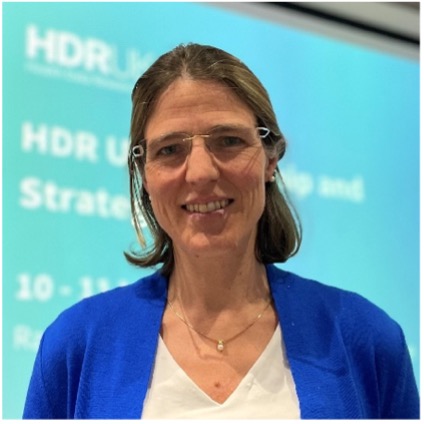Globally, approximately 300 million individuals are affected by one of over 7,000 known rare conditions. Rare diseases present profound clinical and computational challenges, primarily resulting from the lack of data and being understudied. Patients often endure a diagnostic odyssey shrouded in uncertainty, undergoing extensive testing and numerous specialist visits without definitive results.
They live with the shadow of an unidentified illness and are often subjected to treatments that are at best ineffective and, at worst, harmful. The lack of awareness about their condition extends beyond the patients themselves to the medical professionals they consult. Rare diseases, by their nature, are not well-understood, and this knowledge gap can lead to unclear treatment pathways and fragmented patient care, which results in inconsistent data, which in turn contributes to the ongoing lack of understanding, restarting the cycle.
Artificial Intelligence (AI) presents a promising frontier in deciphering these complex issues, capable of using large clinical language models and detecting patterns within limited and unbalanced datasets. AI in rare disease research has been used to integrate disparate data sources, recognise prognostic symptoms, identify key markers, monitor and predict patient outcomes and extracting key information from doctor’s notes.
Nonetheless, applying AI in this context is fraught with challenges, such as scarcity, imbalance, the complexity of disease manifestations, regulatory and ethical constraints, and interpretability of AI models. To harness AI’s potential, there is an imperative to overcome these hurdles by building comprehensive datasets and developing sophisticated algorithms tailored for the nuances of rare diseases.
Scope:
This special session symbolises a critical confluence of disciplines, uniting clinicians, scientists, patients, and policy leaders around the transformative potential of AI in rare diseases. It represents a collective endeavour to reshape the journey of rare disease diagnosis, prognosis, treatment, and care, driven by AI innovations. Our focus is on building momentum for AI techniques that can alleviate the global burden of rare diseases and enhance patient experiences.
Call for Papers:
We encourage contributions from a wide range of disciplines, including biostatistics, medical informatics, epidemiology, genetics, and clinical medicine that address both the opportunities and challenges in applying AI to rare diseases. This includes improving diagnostics, broadening treatment accessibility, augmenting supportive care, and lessening patient burdens through intelligent data systems. The session will highlight topics such as AI-driven diagnostic support, health informatics integration, adaptive learning technologies, and privacy-aware AI architectures in healthcare, aiming to foster a more equitable and efficient future in rare disease management.
Topics of interest (in the context of rare diseases):
- Rare Disease Data Modelling: Tackling the unique complexities inherent in rare event data analysis.
- Multimodal Data Analysis: Combining diverse data sources to create a holistic understanding of patient health.
- Diagnostic AI Innovations: Enhancing disease identification, particularly for conditions that remain undiagnosed.
- AI in Patient Monitoring: Developing AI tools for continuous health tracking and symptom management.
- AI Predictive Models: Crafting and validating AI models to forecast the progression of rare diseases.
- Comparison of AI approaches: Assessing different AI approaches for their effectiveness in the context of rare diseases.
- Medical Text Mining: Employing advanced language models for extracting insights from medical documentation.
- Clinical AI Enhancement: Utilising knowledge distillation techniques to improve AI model performance in understanding rare diseases.
- Ethical AI: Advancing AI systems that prioritise interpretability and patient understanding.
- Secure AI: Establishing AI protocols that protect patient privacy and data security.
Organisers:
Suraj Ramchand, Swansea University, s.n.ramchand@swansea.ac.uk
Duncan Cole, Cardiff University
Invited Speaker:

Dr Fiona Pearce, Director, HDR UK Midlands
Submission format:
This special session welcomes both full length papers (12 pages plus up to 2 pages of references) and abstracts (up to 3 pages including references).
Deadline: All deadlines, including submission deadline and review timeline are the same as the main conference. Please follow this link to see all the Important Dates.
If you have any questions regarding this Special Session, please contact the organiser.
